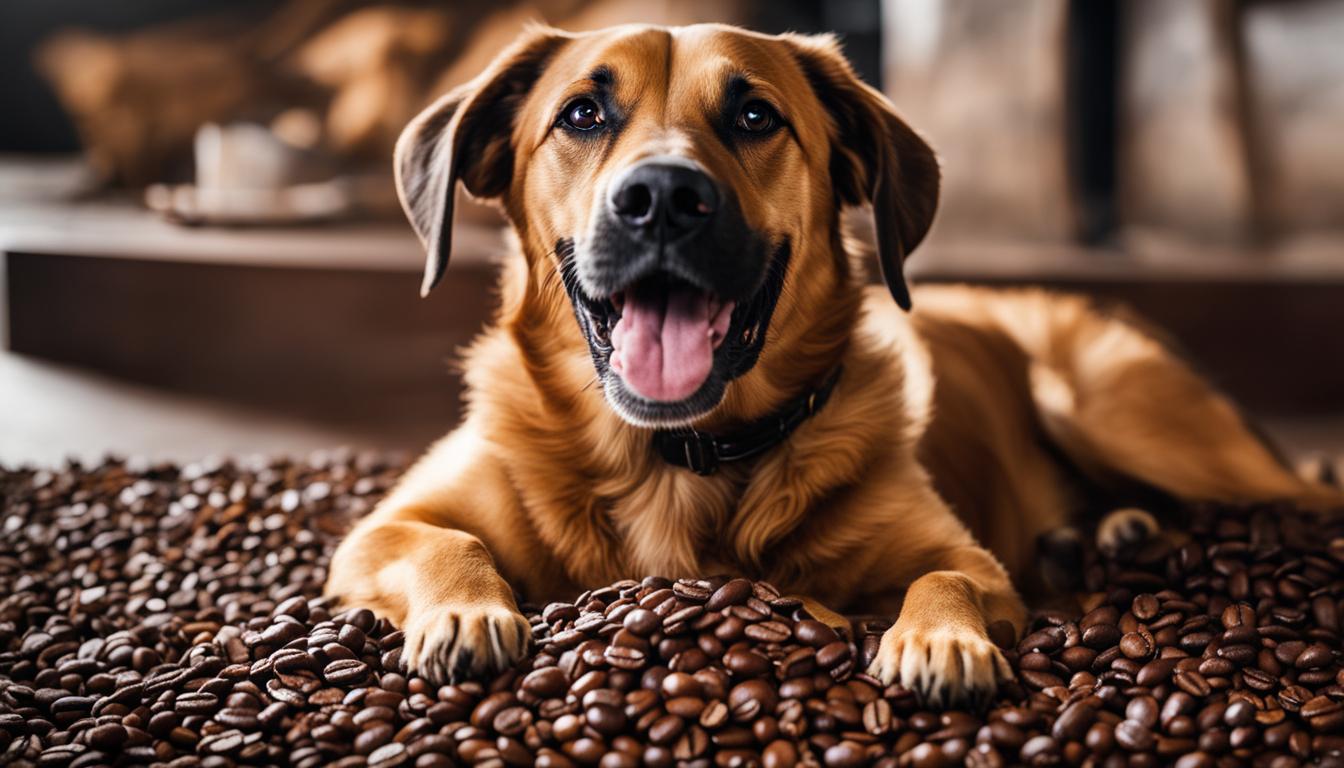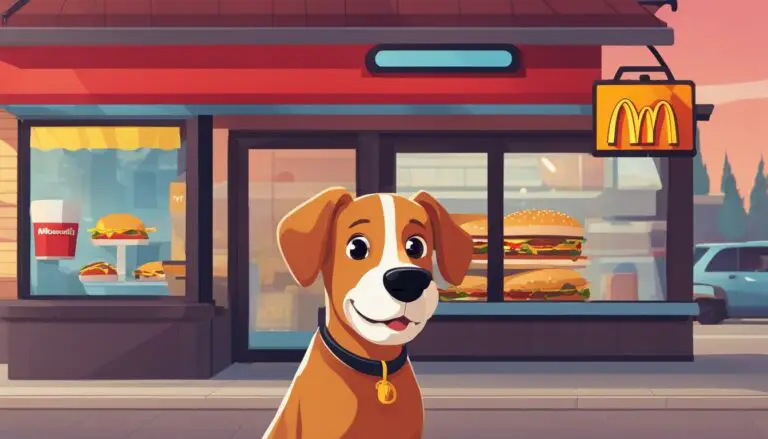Can Dogs Eat Coffee Beans? Professional Insight and Safety Tips
When it comes to our furry friends, we always want to ensure their health and safety. That’s why knowing what foods are safe for dogs to consume is essential. One common question that dog owners often ask is whether dogs can eat coffee beans.
First and foremost, it is crucial to understand that coffee beans are unsuitable for dogs. The reason behind this is caffeine, a stimulant that can harm our canine companions.
Even a tiny amount of caffeine can lead to restlessness, agitation, hyperactivity, vomiting, and panting in dogs. These symptoms can worsen, including tremors, seizures, and irregular heartbeat.
Caffeine consumption takes about 30 minutes to an hour to reach peak concentrations in a dog’s bloodstream. Ingestion of 14 milligrams of caffeine per pound of body weight can lead to restlessness and agitation, while higher doses can cause cardiotoxicity.
If you suspect that your dog has consumed caffeine or coffee beans, it is crucial to contact your veterinarian immediately for assistance. They will be able to provide the appropriate guidance and treatment.
Why is Coffee Bad for Dogs?
Why is caffeine so bad for dogs? It affects their bodies by speeding up their heart rate, raising blood pressure, and increasing body temperature. Dogs can’t process caffeine like humans, so it builds up and causes these problems.
Dog owners should be cautious about coffee and other caffeinated stuff to keep our furry friends safe. It’s best to keep these things away from them and choose safe treats for dogs. Preventing the problem is key to keeping our pets happy and healthy.
Risks and Symptoms of Caffeine Toxicity in Dogs
Caffeine is a stimulant that affects dogs more severely than humans, and even a tiny amount can lead to harmful symptoms. The severity of these symptoms depends on the size of the dog and the quantity of caffeine ingested.
Dogs can exhibit signs of caffeine toxicity within 30 to 60 minutes after ingestion. Restlessness, agitation, hyperactivity, vomiting, panting, tremors, and seizures are common symptoms. In more severe cases, dogs may experience an extremely rapid or irregular heartbeat, which can be fatal.
To better understand the risks and symptoms of caffeine toxicity, refer to the comprehensive table below:
| Symptoms of Caffeine Toxicity in Dogs | Risk Level |
|---|---|
| Restlessness | Low |
| Agitation | Low |
| Hyperactivity | Low |
| Vomiting | Medium |
| Panting | Medium |
| Tremors | High |
| Seizures | High |
| Rapid or irregular heartbeat | High |
Treating Caffeine Toxicity in Dogs and Preventive Measures
If you suspect your dog has consumed coffee beans or any caffeine-containing substance, immediately contact your veterinarian or a pet poison helpline.
The veterinarian may induce vomiting to prevent further absorption of caffeine or administer intravenous fluids to help flush it from the dog’s system.
Medications may also control abnormal heart rhythms, slow an elevated heart rate, and manage tremors and seizures. Caffeine takes 24 to 48 hours to pass through a dog’s system.
To prevent caffeine toxicity in dogs, keeping all caffeine-containing products, including coffee beans, out of reach is essential. It is also important to keep medications and other toxic foods away from dogs to ensure their safety.
Risks of Caffeine Toxicity in Dogs
The risks of dogs eating coffee beans or consuming caffeine include the potential for caffeine toxicity. Dogs can exhibit symptoms of caffeine toxicity within 30 to 60 minutes of ingestion.
These symptoms can include restlessness, agitation, hyperactivity, vomiting, panting, tremors, and seizures. Ingestion of caffeine can also lead to an extraordinarily rapid or irregular heartbeat, which can be fatal.
The intensity of symptoms varies based on the animal’s size and the quantity of caffeine ingested. Recognizing the indications of caffeine toxicity is crucial, and if you believe your dog has consumed caffeine, it’s essential to seek veterinary help promptly.
Preventive Measures
To prevent caffeine toxicity in dogs, it is crucial to take preventive measures. First and foremost, ensure that coffee beans and all caffeine-containing products are securely stored in a place inaccessible to your dog. Avoid leaving coffee cups or mugs within reach of your pet.
Remember that caffeine can also be found in other items, such as tea, chocolate, and some medications, so be cautious when using or disposing of these substances. Educate yourself on the various toxic foods for dogs and keep them out of your pet’s reach.
| Safe Human Food for Dogs | Toxic Foods for Dogs |
|---|---|
| – Lean meats (cooked and unseasoned) | – Chocolate |
| – Plain cooked rice | – Grapes and raisins |
| – Carrot sticks | – Onions and garlic |
| – Apple slices (without seeds) | – Xylitol-containing products |
| – Peanut butter (without xylitol) | – Alcohol |
Other Foods to Avoid Giving Dogs
Apart from coffee beans and caffeine, dog owners should be mindful of various other foods to safeguard the well-being of their pets. These items can threaten dogs and must be kept inaccessible to them.
Xylitol, a sweetener commonly found in candy, gum, toothpaste, and baked goods, is highly toxic to dogs. Ingestion of xylitol can cause a dangerous drop in blood sugar levels and even lead to liver failure. Therefore, it is essential to double-check the ingredients of any products before sharing them with your four-legged companion.
Furthermore, onions, garlic, grapes, raisins, alcohol, chocolate, macadamia nuts, avocados, and spices can harm a dog’s health.
These foods can cause various adverse reactions, ranging from gastrointestinal upset to more severe conditions. Keeping these items securely stored away from your dog is best to prevent any potential health issues.
FAQ
Can dogs eat coffee beans?
No, don’t let dogs eat coffee beans. They have caffeine, which is bad for them and can cause harm.
What are the risks of dogs eating coffee beans?
Consuming coffee beans poses risks for dogs, primarily due to the potential for caffeine toxicity. This can result in symptoms like restlessness, agitation, vomiting, tremors, and seizures. In severe instances, it may lead to fatal outcomes.
Why is coffee bad for dogs?
Avoid giving coffee to dogs as it contains caffeine, which has a more pronounced impact on them than humans. Caffeine toxicity in dogs can lead to elevated body temperature, irregular heart rhythms, high blood pressure, vomiting, diarrhea, excessive panting, and, in severe instances, seizures or fatal outcomes.
What are the symptoms of caffeine toxicity in dogs?
Dogs experiencing caffeine toxicity may exhibit signs such as restlessness, agitation, hyperactivity, vomiting, panting, tremors, seizures, and an irregular heartbeat. The intensity of these symptoms correlates with the dog’s size and the quantity of caffeine ingested.
How is caffeine toxicity in dogs treated?
If you think your dog consumed coffee beans or any caffeine-containing item, promptly contact your vet. Immediate actions may involve inducing vomiting, providing intravenous fluids, and administering medications to regulate heart rhythms, reduce a heightened heart rate, and address tremors and seizures.
What are other foods to avoid giving dogs?
In addition to steering clear of coffee beans and caffeine, it’s essential to keep dogs away from items containing xylitol, onions, garlic, grapes, raisins, alcohol, chocolate, macadamia nuts, avocados, and specific spices. These substances have the potential to be harmful to dogs, leading to various negative effects.






